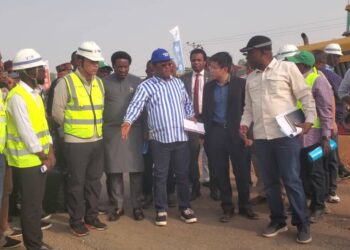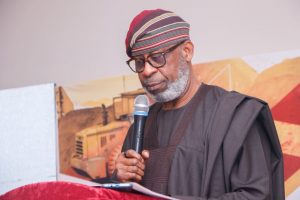As the national public hearing on the review of the 1999 Constitution ended on Friday in Abuja, the legality or otherwise of the Constitution between those agitating for a new Constitution and the Deputy President of the Senate, Ovie Omo-Agege took centre stage.
While representatives of the five South-south states under the umbrella of BRADEC United Assembly described the 1999 Constitution as “illegal and a contraption not desirable by the majority of Nigerians,” Omo-Agege said “it is only a court of competent jurisdiction that can set aside the Constitution as illegal.”
Senior Advocate of Nigeria (SAN), Mike Ozekhome, a member of BRADEC who made a personal presentation at the second day of the Senate public hearing, said the 1999 Constitution “is an illegal document which should be jettisoned rather than decorating it with series of amended clauses.”
He called on the Senate Committee to adopt various recommendations of past Consultative bodies and memoranda submitted during the zonal hearings, in commencing the process for a new constitution.
Ozekhome said: “The 1999 Constitution was hurriedly compiled from the schedules of Decree 4 by the military. The Constitution is a unitary document which concentrates powers at the centre in a federation.
“The 1999 Constitution is like an illegitimate child that cannot be made legitimate through a series of amendments. You cannot put something on nothing.”
Also, the spokesperson for BRADEC, a former Minister of Foreign Affairs, Chief Tom Ikimi, faulted the remarks by Omo-Agege that the Nigerian people cannot have a brand new constitution even when it is widely accepted that the 1999 Constitution is seriously flawed.
Omo-Agege thereafter urged Ozekhome and by extension BRADEC to first seek the amendment of Section 9 of the 1999 Constitution before commencing the process of having a new constitution.
Bringing the two-day deliberations to a close, the chairman of the Committee, Omo-Agege appreciated all sections of Nigerians, corporate bodies, ethnic nationalities, religious bodies, professional groups and individuals that made presentations at the zonal and national hearings.




